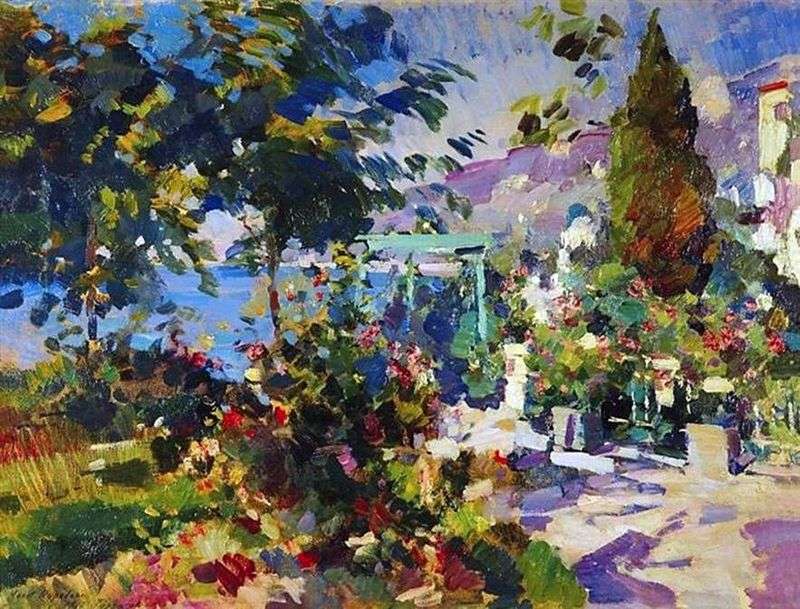
The painting of the remarkable Russian impressionist Konstantin Korovin “Crimea: Gurzuf” refers to the so-called “Crimean” period of the artist’s work. He was very fond of visiting his dacha in the Crimea, where he felt extraordinary inspiration. It is known about the existence of the artist several paintings on a small resort town called Gurzuf.
In the picture “Crimea. Gurzuf,” which Korovin wrote in 1917, immediately struck by the riot of the colors of the nature of the southern seaside city. It is written in the traditional manner of Korovin’s impressionism: broad, very bright brushstrokes, from which, at close range, it simply dazzles in the eyes. Therefore, it is better to consider it from a certain distance. Then she fully opens her artistic merits to the audience.
In the composition plan, the main thing in the picture is the diagonal. All elements and details are subordinate to it. The lower left corner of the canvas is occupied by a motley grass carpet, from which two trees grow. Their foliage is depicted with deliberate negligence, as if the southern warm wind prevented the artist from stopping for a moment. Stretching tree trunks add a picture of lightness and airiness. In the opposite, right part of the canvas, the artist painted another tree, and all together they form a peculiar frame of the picture, giving it a cozy and finished look. The sun-drenched path, followed by the viewer’s view, leads through the arch to the endless blue sea surface. Another diagonal is a mountain chain of purple, the image of which is parallel to the sand track.
Bright and colorful colors transform the southern landscape into a kind of theatrical scenery. But this theatricality and staging does not in the least interfere with the artistic impressions of Konstantin Korovin from the riot of colors of southern nature, depicted by the painter in the picture “Crimea Gurzuf.”
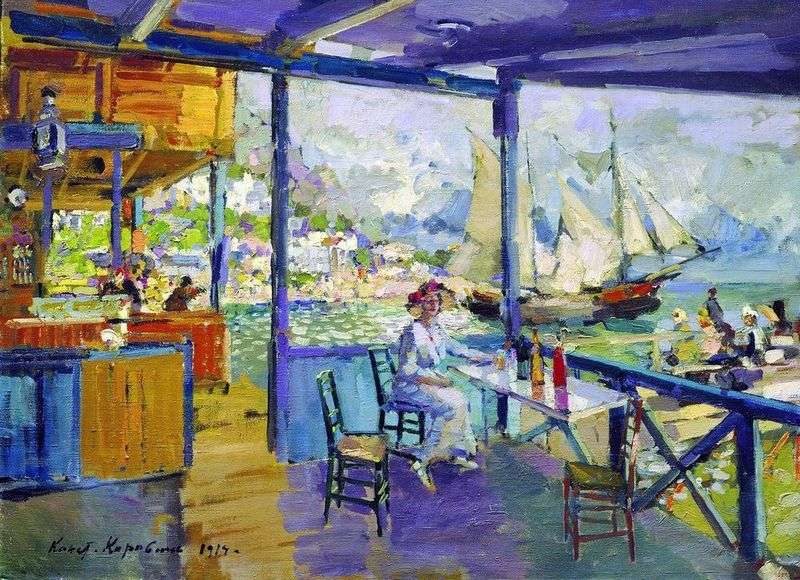 Pier in Gurzuv by Konstantin Korovin
Pier in Gurzuv by Konstantin Korovin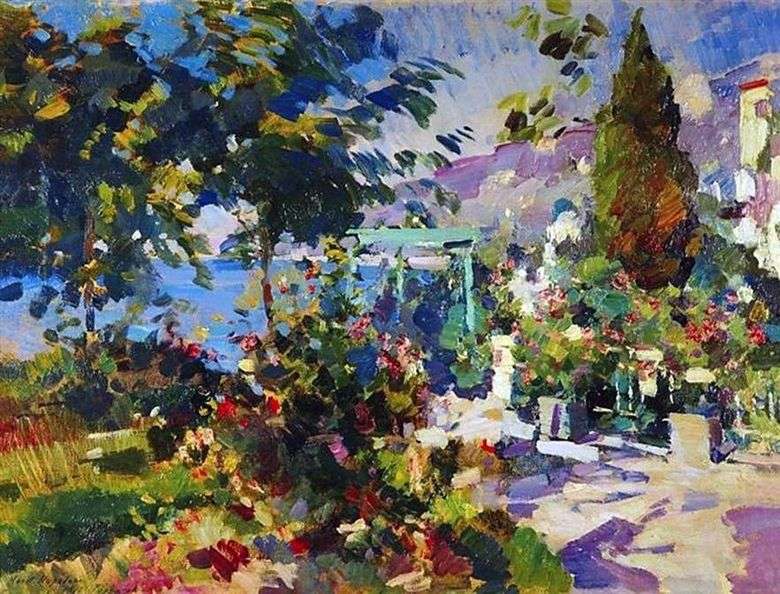 CrimeaGurzuf – Konstantin Korovin
CrimeaGurzuf – Konstantin Korovin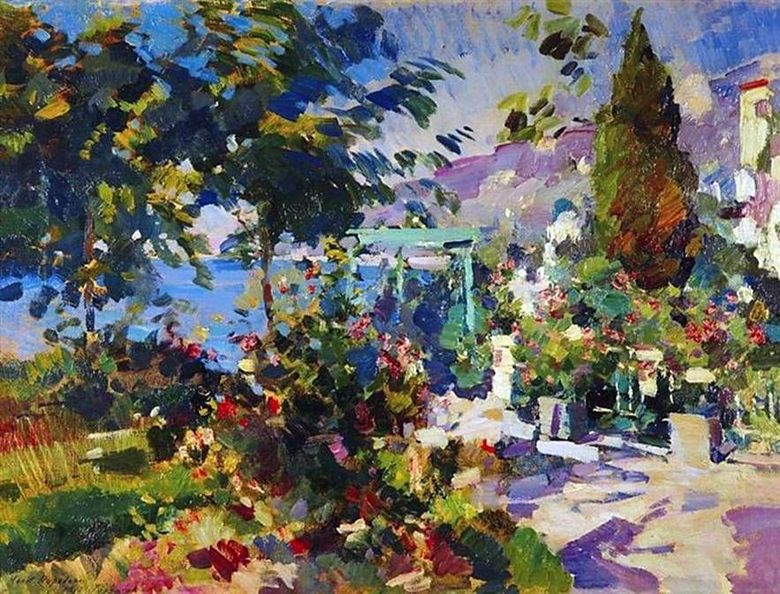 Crimée Gurzuf – Konstantin Korovin
Crimée Gurzuf – Konstantin Korovin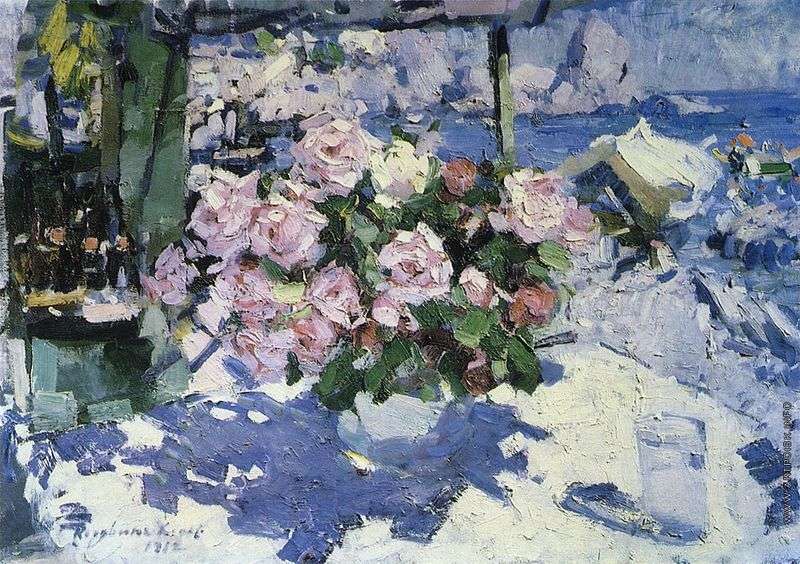 Roses by Konstantin Korovin
Roses by Konstantin Korovin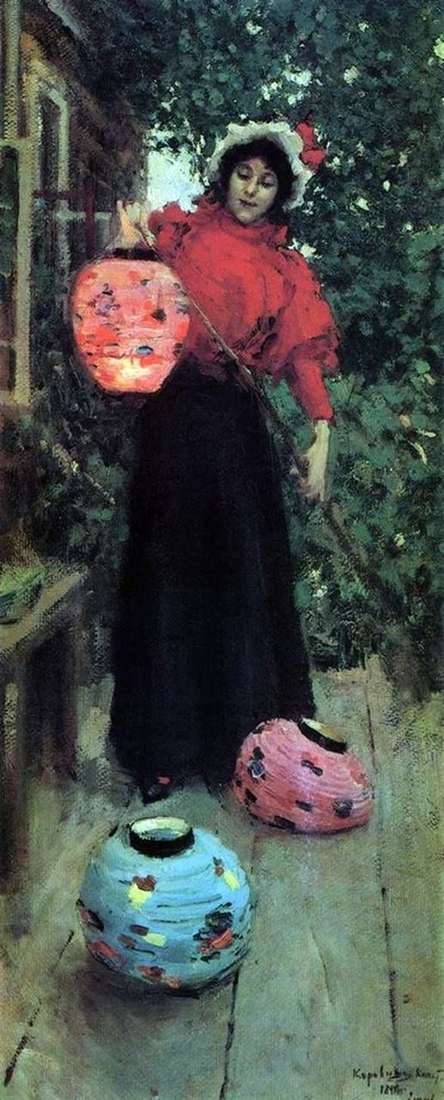 Paper Lanterns by Konstantin Korovin
Paper Lanterns by Konstantin Korovin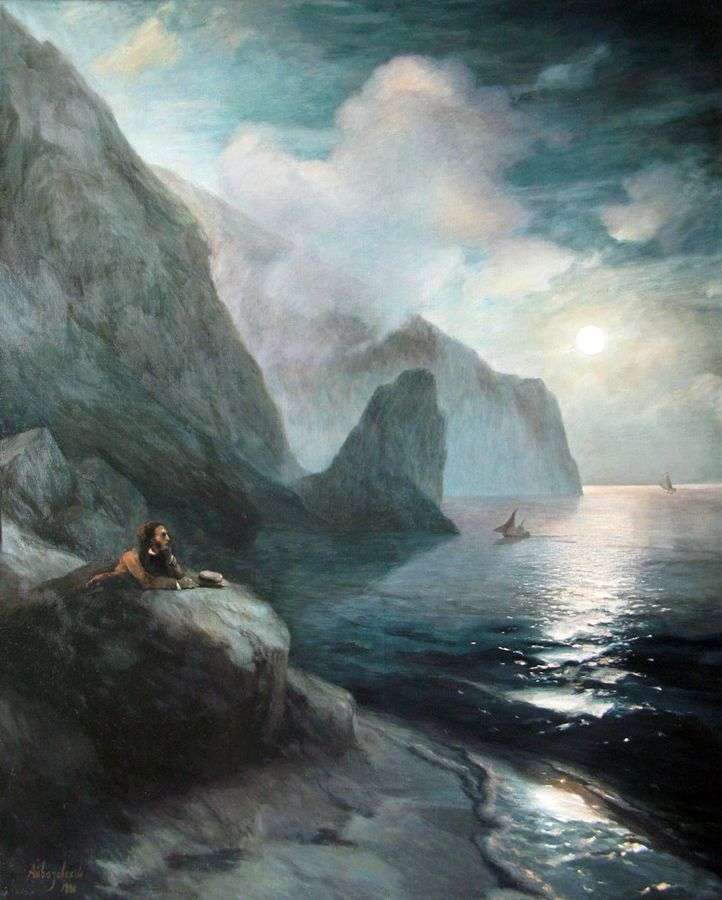 Pushkin in the Crimea at the Gurzuf rocks by Ivan Aivazovsky
Pushkin in the Crimea at the Gurzuf rocks by Ivan Aivazovsky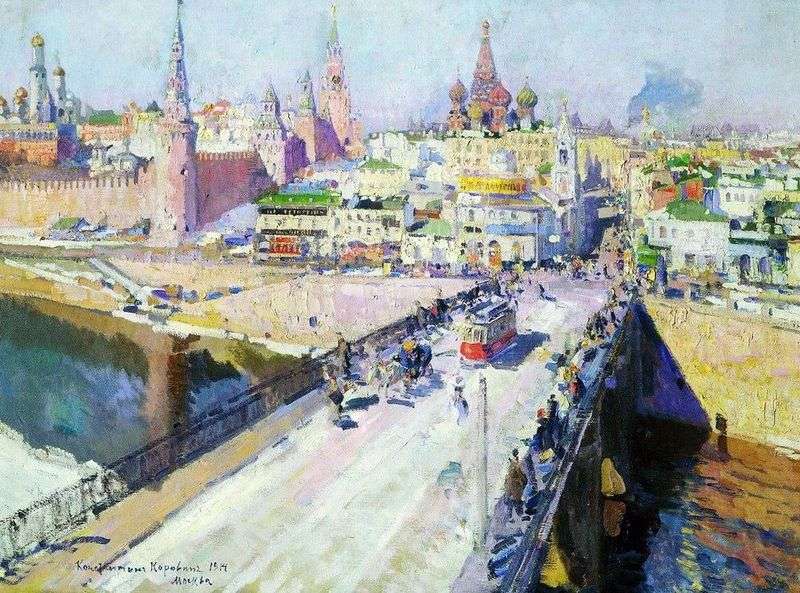 Moskvoretsky Bridge by Konstantin Korovin
Moskvoretsky Bridge by Konstantin Korovin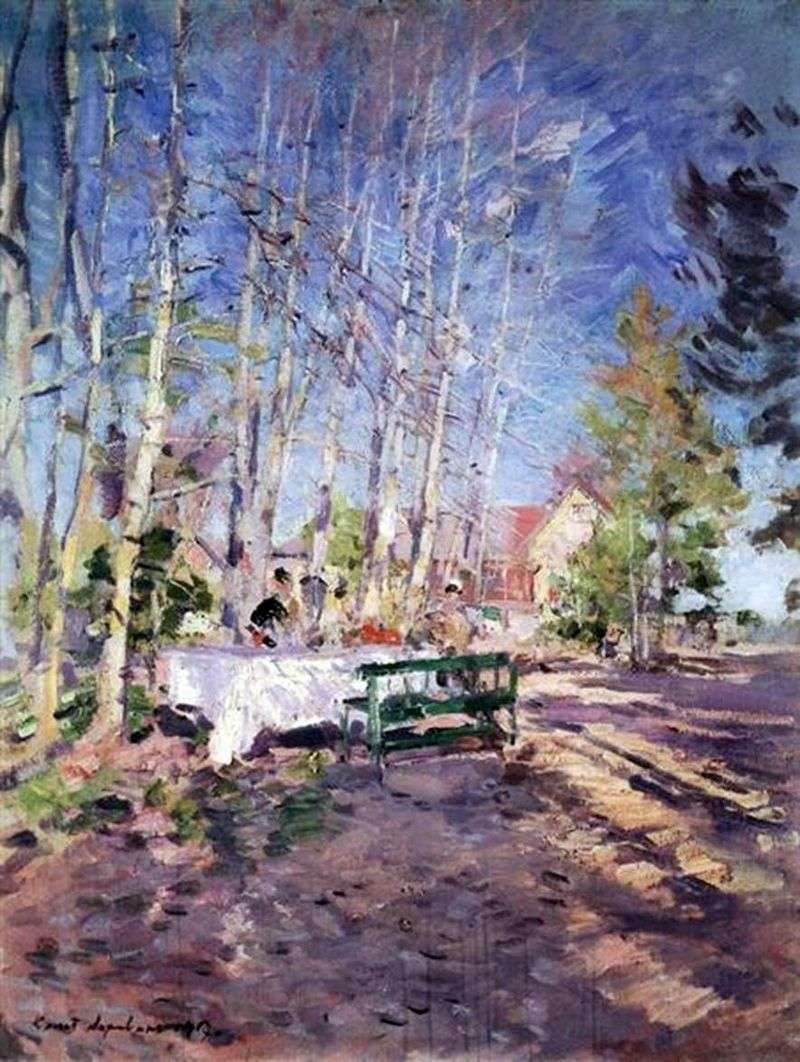 Spring by Konstantin Korovin
Spring by Konstantin Korovin